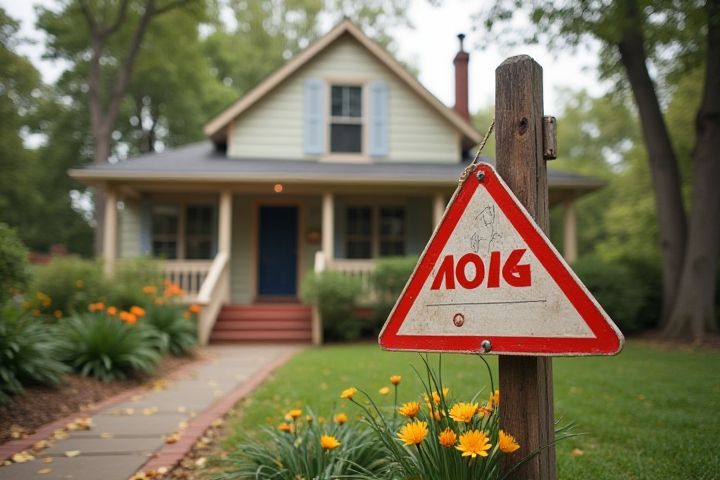
You can rent out your house on Airbnb by creating an attractive listing that showcases key features such as location, amenities, and unique selling points. Ensure your space meets Airbnb's quality standards, offering comfortable accommodations and a welcoming atmosphere for guests. Familiarize yourself with local regulations regarding short-term rentals to avoid potential fines and ensure compliance. Setting a competitive price based on similar listings in your area can maximize your chances of booking. Finally, maintaining communication with your guests and providing exceptional hospitality will lead to positive reviews and repeat bookings.
Can You Airbnb Your House
Local regulations
When considering listing your house on Airbnb, it is crucial to familiarize yourself with local regulations regarding short-term rentals. Many cities impose specific licensing requirements, zoning laws, and limitations on the number of nights you can rent your property. You should check whether you need to register with local authorities or pay any applicable taxes, such as occupancy tax. By ensuring compliance with these regulations, you can avoid potential fines and create a welcoming environment for your guests.
Short-term rental permits
To Airbnb your house legally, obtaining a short-term rental permit is often necessary, depending on your location. Many cities enforce regulations that require homeowners to secure these permits to ensure compliance with local zoning laws and safety standards. For example, cities like Los Angeles and New York City mandate registration, often limiting rentals to a certain number of nights per year, typically ranging from 90 to 180 nights. Before listing your property, ensure you check your local laws, as failure to acquire the proper permits can result in hefty fines or even eviction from the platform.
Homeowners association rules
Homeowners associations (HOAs) often impose specific regulations regarding short-term rentals like Airbnb, which can affect your ability to rent out your property. Many HOAs require homeowners to seek approval before listing their homes on rental platforms, and some completely prohibit short-term rentals. If you are considering Airbnb, you should review your HOA's governing documents, including covenants, conditions, and restrictions (CC&Rs), to ensure compliance and avoid potential fines. Understanding these rules is crucial, as violations could lead to legal disputes and significant financial repercussions.
Insurance requirements
If you choose to Airbnb your house, understanding the insurance requirements is crucial for protecting your property and finances. Standard homeowner's insurance policies often do not cover short-term rentals, so it's essential to invest in a policy specifically designed for hosting on platforms like Airbnb. Many companies offer coverage that includes liability protection and property damage, typically ranging from $1 million to $2 million in liability coverage. Be sure to review your local regulations, as some jurisdictions may also mandate specific insurance types for short-term rentals.
Tax obligations
Airbnb hosts must adhere to specific tax obligations to ensure compliance with local regulations. Income generated from short-term rentals is typically subject to federal income tax, meaning you must report it on your tax return. Depending on your location, you may also need to collect and remit occupancy taxes, which often vary by city or state. It's essential to keep accurate records of your rental income and any deductible expenses, such as maintenance and utilities, to minimize your tax liability and simplify the filing process.
Hosting responsibilities
Hosting on Airbnb involves several critical responsibilities to ensure a high-quality guest experience. You must maintain a clean and well-stocked space, providing essential amenities such as fresh linens, toiletries, and cooking supplies. Clear communication is vital; promptly responding to inquiries and check-in instructions creates a welcoming atmosphere for guests. Additionally, adhering to local laws and regulations regarding short-term rentals is crucial for a successful hosting venture.
Guest screening process
The guest screening process on Airbnb is crucial for ensuring the safety and comfort of your property. You can set specific requirements, such as verified ID, positive reviews, and minimum booking history, to filter potential guests effectively. Implementing a comprehensive communication strategy allows you to ask questions about a guest's intentions and reason for the stay, helping you gauge their suitability. By utilizing these screening features, you can reduce risks and enhance the overall experience for both you and your guests.
Property maintenance
To successfully Airbnb your house, effective property maintenance is crucial. Regular inspections of plumbing, electrical systems, and heating or cooling units can enhance guest satisfaction and prevent costly repairs. Maintaining a clean and inviting environment includes routine deep cleaning and ensuring all amenities are functional, which can lead to better reviews and increased bookings. Investing in quality furnishings and timely repairs creates a welcoming atmosphere, ultimately attracting more guests and fostering repeat visits.
Safety and security measures
Airbnb hosts should implement robust safety and security measures to protect guests and property. Install smoke detectors in every room and carbon monoxide alarms to comply with safety regulations, ensuring peace of mind for your visitors. Utilize smart locks for keyless entry, allowing you to manage access remotely and track entry times. Consider enhancing home security with outdoor cameras and motion sensor lights, creating a secure environment that reassures both you and your guests throughout their stay.
Pricing strategy
Setting the right pricing strategy for your Airbnb is crucial for maximizing occupancy and revenue. Research comparable listings in your area, focusing on similar size, amenities, and location, to determine an average nightly rate; consider adjusting your price between $90 to $250 based on demand and season. Implement dynamic pricing tools to automatically adjust your rates according to local events or peak seasons, potentially increasing earnings by up to 30%. Offering discounts for extended stays, such as 10-15% off for bookings over a week, can attract longer-term guests and ensure a steady income stream.
